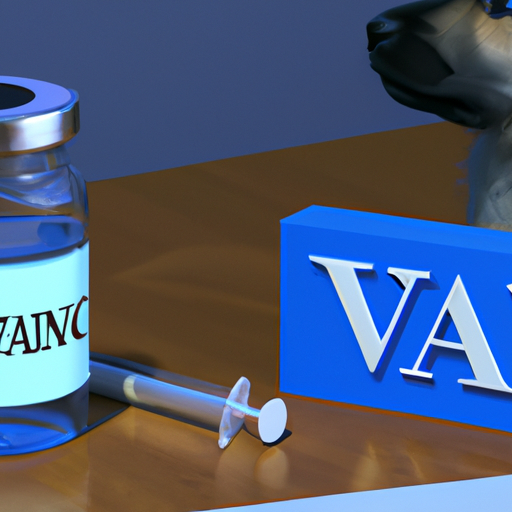When it comes to ensuring the long-term health and wellbeing of our beloved canine friends, vaccination is a crucial aspect that should not be ignored. Among the myriad of vaccines available for dogs, the Parvo vaccine stands out as one of the most critical.
Table of Contents
1. Understanding Canine Parvovirus
2. Importance of the Parvo Vaccine
3. How Does the Parvo Vaccine Work?
4. When Should Dogs Get the Parvo Vaccine?
5. Frequently Asked Questions
Key Takeaways
- Canine Parvovirus is a highly contagious and deadly disease for dogs.
- The Parvo vaccine is essential for preventing this disease.
- Puppies should start receiving the vaccine as early as six weeks old.
- Regular booster vaccines are crucial to ensure continued immunity.
Understanding Canine Parvovirus
Canine Parvovirus, commonly referred to as Parvo, is a highly contagious viral illness that can prove fatal for dogs, particularly puppies. This virus primarily attacks the dog’s intestinal tract, leading to severe dehydration, malnutrition, and in worst cases, death. A less common but more deadly form of the virus, myocarditis, affects the heart muscles of very young puppies, often leading to sudden death. You can learn more about canine parvovirus on American Veterinary Medical Association’s page.
Importance of the Parvo Vaccine
The Parvo vaccine is central to preventing canine parvovirus. Given the highly infectious and deadly nature of Parvo, vaccination is undoubtedly the best defense against this disease. The vaccine triggers the dog’s immune system to produce antibodies that will fight off the virus if the dog is ever exposed to it.
The Parvo vaccine is usually given in a combination shot, known as a 5-in-1 shot (distemper, hepatitis, leptospirosis, parvovirus, and parainfluenza). Some veterinarians also offer a 7-in-1 shot, which also covers canine coronavirus and Lyme disease. This article from OneTopDog offers more insight into the different types of vaccines available for dogs.
How Does the Parvo Vaccine Work?
The Parvo vaccine works by introducing a small, harmless piece of the virus into the dog’s system. This stimulates the immune system to produce antibodies against the virus, providing immunity without causing the disease.
Table: Parvo Vaccine Schedule for Puppies
| Age | Vaccine |
|---|---|
| 6-8 weeks | First Parvo Vaccine (usually in a combination shot) |
| 10-12 weeks | Second Parvo Vaccine (usually in a combination shot) |
| 14-16 weeks | Third Parvo Vaccine (usually in a combination shot) |
| 1 year | Booster shot (usually in a combination shot) |
| Every 1-3 years | Regular booster shots (frequency depends on vet’s recommendation) |
When Should Dogs Get the Parvo Vaccine?
Puppies should receive their first Parvo vaccine between six and eight weeks of age. They should then get a booster shot every three to four weeks until they are 16 weeks old. After the initial series, dogs should get a booster shot every one to three years, depending on their vet’s recommendation.
Unvaccinated adult dogs should start with a series of two vaccines given three to four weeks apart, followed by a booster shot one year later. For more detailed information on the dog vaccination schedule, here is a helpful guide from OneTopDog.
Frequently Asked Questions
Q: Is the Parvo vaccine safe for my dog?
A: Yes, the Parvo vaccine is generally safe for most dogs. Like any vaccine, it may cause minor side effects like soreness at the injection site or mild fever, but serious side effects are rare.
Q: Can adult dogs get Parvo?
A: While Parvo is more common in puppies, adult dogs can also contract the virus, especially if they are not vaccinated. This underscores the importance of keeping up with your dog’s vaccines throughout their life.
Q: Can my dog get Parvo even if they’ve been vaccinated?
A: While the Parvo vaccine is highly effective, no vaccine is 100% foolproof. However, vaccinated dogs that do contract Parvo will typically experience a much milder form of the disease.
The Parvo vaccine is a vital component of your dog’s healthcare regimen. By starting your dog on this vaccine early and keeping up with regular boosters, you can significantly reduce their risk of contracting this dangerous disease. Remember, as a caregiver, it’s not just about keeping your dog healthy—it’s about ensuring they live a long, happy life by your side. For more information on the Parvo virus and other risks to your dog’s health, check out these resources.



